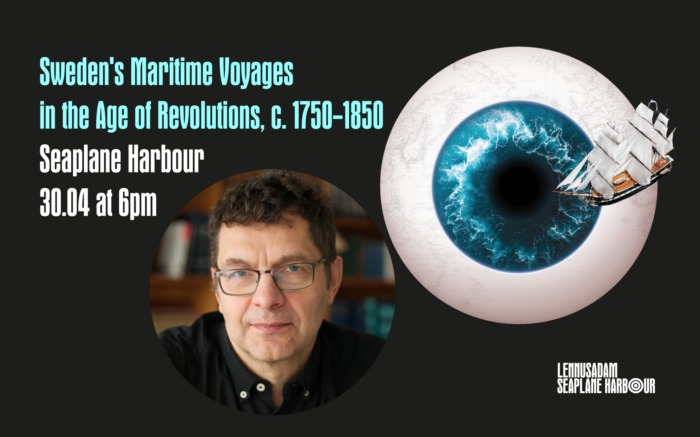30.04 kell 18.00 Lennusadamas

18. sajandi teine pool tähistas Rootsi kaubalaevanduse kuldaega. Rootsi lipu all seilavate laevade kogumahutavus suurenes koos kaubanduse haardega. Rootsi laevadest said regulaarsed külalised Vahemere sadamates ning õige pea ka Atlandi ookeanil ja Lääne-Indias. Samuti täitis Rootsi Ida-India Kompanii sarnaselt teiste Euroopa riikide samanimeliste ettevõtetega olulist rolli kaubanduses Hiinaga. Paljudel nendel laevadel seilasid Rootsi teadlase Carl von Linné õpilased, kellest mõned osalesid isegi James Cooki Vaikse ookeani avastusreisidel. Kuigi merkantilistlik majanduspoliitika ning suur nõudlus Rootsi kaupade järele mängisid selles laienemises suurt rolli, oli vahest olulisemgi Rootsi neutraliteet Inglise-Prantsuse sõdade ajal aastatel 1756–1815. Need kümnendid aitasid panna aluse Rootsi riigi merendustegevusele 19. sajandi esimesele poole. Nendele teemadele sel murrangulisel ajajärgul Leos Mülleri ettekanne keskendubki.
Leos Müller on Stockholmi Ülikooli ajalooprofessor ning sealse merendusajaloo uurimiskeskuse (CEMAS) direktor. Ta on ulatuslikult uurinud merendus- ja globaalajaloo teemasid, samuti neutraliteedi pikka ajalugu. Tema viimaste raamatute hulka kuuluvad muuhulgas Sveriges första globala århundrade (2018), Neutrality in World History (2019), 200 Years of Peace, kirjutatud ja toimetatud koos Nevra Biltekini & Magnus Peterssoniga (2022), ning Europas vändpunkter, 1492, 1914, 1989 (2024).
Merefoorum on osalejatele tasuta ja toimub inglise keeles.
Sweden’s Maritime Voyages in the Age of Revolutions, c. 1750-1850
The second half of the 18th century marked a golden age for Swedish merchant shipping. The tonnage under the Swedish flag expanded alongside the growing scope of trade. Swedish ships became frequent visitors to Mediterranean ports, and later, they ventured into the Atlantic Ocean and the West Indies. The Swedish East India Company emerged as one of the major European players in the China trade. Disciples of the Swedish scholar Linnaeus were aboard these ships and even participated in James Cook’s discoveries in the Pacific. While mercantilist policies and the demand for Swedish goods played a role in this expansion, perhaps more crucial was Sweden’s “neutrality” during the Anglo-French wars between 1756 and 1815. These wartime decades helped lay the foundations for the country’s maritime activities in the first half of the 19th century. The talk will focus on these aspects of Sweden’s maritime voyages during this groundbreaking period.
Leos Müller, Professor of History and Director of the Centre for Maritime Studies at Stockholm University, has published extensively on maritime and global history, as well as the long history of neutrality. His most recent books include Sveriges första globala århundrade (2018), Neutrality in World History (2019), 200 Years of Peace, written and edited together with Nevra Biltekin & Magnus Petersson (2022), and Europas vändpunkter, 1492, 1914, 1989 (2024)